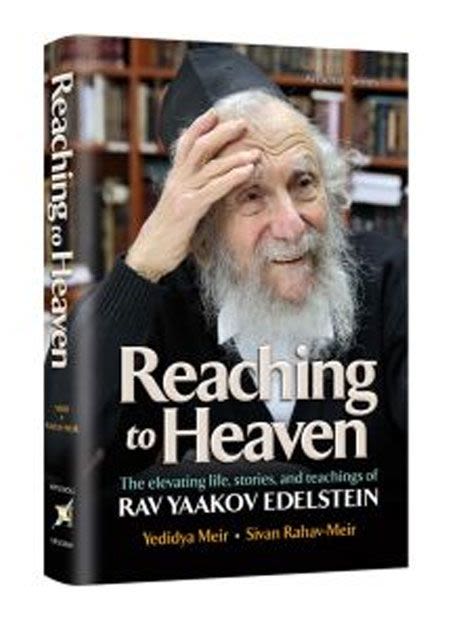
Beshalach: The Silent Scream
Hashem is teaching us a lesson: "You don't need to cry out to Me within earshot of others; a silent scream from your heart is enough!"

“Why do you cry out to Me?” (Shemot 14:15)
The apparent meaning of the above passage is that Hashem is telling Moshe (Moses) that this is not a time for prayer, but a time for action and dedication. In other words, it’s the time to plunge into the Red Sea.
On a deeper level, Hashem is teaching an additional lesson to Moshe and the Children of Israel: It’s as if Hashem is saying, “You don’t need to cry out to Me within earshot of others; a silent scream from the depths of your heart is enough!”
Rav Shalom Arush, shlit’a, warns that although one must scream out to Hashem in personal prayer, his or her voice should not be heard by anyone else. When the silent scream is devoid of vanity and externality, it is solely for Hashem. Such prayers ascend immediately, and avoid obstruction from evil elements. If during hitbodedut in the field a person shouts like a wild animal and the voice is heard by others, it creates a defamation of Hashem’s Name, Heaven forbid, and is lost to the kelipot, the elements of evil.
Rebbe Nachman of Breslev elaborates (Sichot HaRan 16), “One can shout loudly in a small, silent voice, without anyone hearing, because one doesn’t emit a sound, but simply screams silently with this soundless small voice. Anyone can do this. Just imagine the sound of such a scream in your mind. Depict the shout in your imagination exactly as it would make a sound. Keep this up until you are literally screaming with this soundless small voice. This is actually a scream and not mere imagination. Just as some vessels bring the sound from your lungs to your lips, others bring it to the brain. You can draw the sound through these nerves, literally bringing it into your head. When you do this, you are actually shouting inside your brain. When you picture this scream in your mind, the sound actually rings inside your brain. You can stand in a crowded room, screaming in this manner, with no one hearing you.”
The silent scream is a cogent weapon of prayer that enables a person to cry out to Hashem from a crowded subway, bus, or train station. By virtue of the silent scream, one can utilize otherwise wasted time to talk to Hashem and to express one’s deepest and strongest trepidations and emotions. The beauty of the silent scream is that no one can hear it but Hashem; not even the loftiest angels are privy to silent screams.
With Hashem’s loving help, the following parable will help us understand the power of the silent scream:
The April sunshine melted the remainder of the ice on the River Bug in the Central Ukraine. The forests and fields were coming alive with lush new growth. Both flora and fauna were emerging from their winter slumber, but so were the hunters.
From the time they’re hatched, wild goslings hear the nightmarish tales of the hunters, who use their lethal weapons to spread terror throughout the forest and lake area. Therefore, geese are especially spiritual birds for they must pray constantly for Divine protection. The gentle species that are subject to danger, like deer and geese, are particularly close to Hashem.
One brown-and-black-feathered mother goose lovingly nudged her gosling. “You’ve developed marvelously, my son. It’s time to spread your wings and fly independently.”
The gosling trembled; its eyes glistened with tears of consternation. “Mother, how can I fly? I already hear the crack of g-gunfire from afar; th-the h-hunters frighten me! Maybe I’ll be shot!”
The mother goose reassured her youngling. “Trust in Hashem; all of us geese must learn emuna at a very young age. But, there’s something else you must know also…”
“What’s that, mother?”
“Never honk within gunshot range of the hunters; by making noise, you expose yourself. Our honking is only for high altitude flying. Whenever you must fly low or alone, such as a short flight from nest to lake, remain silent. When you fly with the flock, and everyone else is honking, you too can honk!”
* * *
The mother goose’s advice is perfect for prayer. When a person is praying in public and everyone is singing aloud, then singing aloud is not only commendable, it’s the order of the day. But, when a person is in a situation of hitbodedut, or private and personal prayer, raising one’s voice only exposes one’s prayers to the “hunters,” the forces of evil that try their best to obstruct a person’s prayers from ascending to the Heavenly Throne. Personal prayer is especially cogent, as Rebbe Nachman teaches us, since the forces of evil have difficulty in obstructing that which is not routine. But, as soon as a person shouts – especially if the tiniest part of vanity or externality is mixed in with the shout – the prayer loses its power.
Audible personal prayer is dangerously exposed to the evil elements that lie in ambush of vulnerable prayers and good deeds that aren’t done with the best of intent.
The silent scream is often a person’s master-key to salvation. May Hashem put the proper words of prayer on our lips to expedite the full redemption of our people, speedily and in our time, Amen.











Tell us what you think!
Thank you for your comment!
It will be published after approval by the Editor.